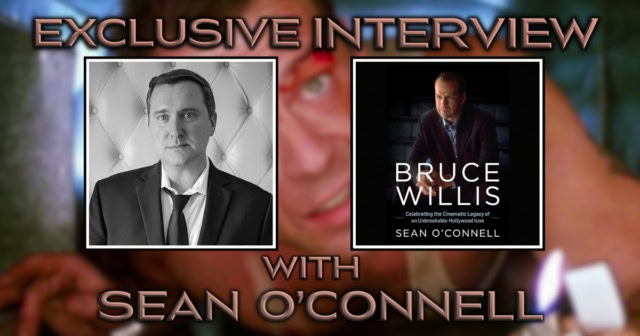Book Review: ‘With Great Power: How Spider-Man Conquered Hollywood During The Golden Age Of Comic Book Blockbusters’

Spider-Man is undeniably one of the most beloved pop culture icons of the 20th and 21st centuries. It all started in August 1962, when Spider-Man creators Stan Lee, and Steve Ditko decided to introduce Peter Parker in the 15th issue of the Amazing Fantasy comic series. A few months after his introduction, a wave of commercial and public success followed the more frequent appearances of our beloved neighborhood Spider-Man.
Spider-Man’s cinematic journey has not been accurately portrayed or even documented in any medium. Now his story from Hollywood and the Golden Age of Blockbusters is being shared in the upcoming book With Great Power: How Spider-Man Conquered Hollywood during the Golden Age of Comic Book Blockbusters, by Sean O’Connell (who also chronicled the Release the Snyder Cut movement in 2021).
[Note: While I am reviewing this novel independently and honestly, it should be noted that it has been provided to me by Rowman & Littlefield/Applause books for the purpose of this review. Warning: My review of With Great Power: How Spider-Man Conquered Hollywood during the Golden Age of Comic Book Blockbusters does contain some light spoilers!]
Spider-Man’s journey from humble beginnings to Hollywood and more
With Great Power contains many exclusive and detailed interviews with screenwriters, actors, directors, and producers. It explores the history of Spider-Man in pop culture and even debunks some wild theories about our beloved web-head.
This book is sure to help some of you understand exactly who Spider-Man is and how culturally relevant his complex personality and adventures are. O’Connell uncovers the powerful impact of the Spider-Man phenomenon not only in comic books, but also in games, movies and TV series, and even real-life situations.
Personally, I love how O’Connell’s book perfectly describes how Peter Parker/Spider-Man’s character is, with real-life people comparing him to a normal teenage kid who has the same problems as normal people. The character’s cultural impact is also significant because anyone can be Spider-Man! When he’s wearing a mask, people don’t know who he is, so he could be practically anyone. Any kid or adult can identify with him, which is very beautiful, and helps explain why his stories are so popular across generations, even after 60 years.

The first actor to play Spider-Man in a fully live-action production was Nicholas Hammond, who led a trilogy of films from 1977 to 1981. Although his series didn’t get much publicity, you can read some passages in With Great Power about the significance these early films had for future productions.
Delving further into the stories in this book, one of the most recognizable successes of the Spider-Man franchise is undoubtedly in 2002 when Sam Raimi released the first of his Spider-Man films starring Tobey Maguire. The book goes on to describe the success of Sam Raimi’s Spider-Man films (2002-2007), as well as the performances of later Spider-Men actors Andrew Garfield (2012-2014) and Tom Holland (2016-present), which are also heavily explored in great detail.
The performances of the Spider-Man actors are analyzed. Each of them gets a fair amount of time during the interviews, and the book includes many of their quotes and opinions on the importance of our friendly neighborhood web-head.
I really liked how every person in this book was filled with joy, happiness, and love for Spider-Man. While reliving and learning about this amazing history, you can also learn a few secrets that have not necessarily seen the light of day. O’Connell writes the book like a columnist, but it works really well, especially as we flow through all the anecdotes, jokes, iconic moments, and various topics. Even very emotional stories are shared. There are also some behind-the-scenes interviews with actors or producers that suggest that they may have been skeptical about making these productions.

The portrayal of Spider-Man’s legacy is done in such a spectacular and charming way that it almost feels like every Spider-Man fan had a hand in writing this book. 2018’s Oscar-winning animated film Spider-Man: Into the Spider-Verse certainly confirms that these productions, as well as the stories of the heroes, are created for everyone.
With Great Power: living up to Spider-Man’s legacy
The legacy of Stan Lee and Steve Ditko has lived, lives, and will live on even after we are all gone, but the impact of Spider-Man is greater than we think. Many thought that Spider-Man would only become popular in the United States because it was their branded product, but a very surprising turn of events soon took place. Following the release of the original Spider-Man film with Nicholas Hammond, Japanese production company Tōei teamed up with Marvel to create a web-head series of their own. Aiming for audiences who preferred manga to Marvel, Tōei decided to change Spider-Man’s story to fit a Japanese market driven by action-packed productions.
During this time, Marvel Entertainment adviser Gene Pelc moved to Japan in order to work on the series. As he said (as quoted in With Great Power)
“While I was sitting here in Japan, I brought my young son with me, and he and a lot of his friends watched these shows on Japanese TV. Things like Kamen Rider. Kids loved it, even though they didn’t understand what was being said, they loved the action, they loved the music. There was a driving force behind them.”
I was surprised to discover this because I thought the Japanese producers only had the rights to create the series. I didn’t know that Marvel worked with them on it. This situation illustrates exactly how each country has a unique and culturally appropriate legacy to live on for a very long time, without even needing their own Marvel-branded Spider-Man productions.
Because of fans like Sean O’Connell, and books like With Great Power: How Spider-Man Conquered Hollywood during the Golden Age of Comic Book Blockbusters, the legacy of Spider-Man and its creators Steve Ditko and Stan Lee will live on forever. This is a great book for anyone who loves Spider-Man. If you want to know how Spider-Man became such a popular character, why people who aren’t even interested in comic books know who he is, and even more, then you should definitely read this book.
THE BOOK IS HERE!!
I poured my heart into this #SpiderMan book. It documents the character’s entire Hollywood history. I can’t believe I can finally hold it in my hands!!
WITH GREAT POWER is hardcover. It’s 300 pages. And it hits shelves on November 1. Please grab a copy! pic.twitter.com/tbkjHm5RGz
— Sean O'Connell (@Sean_OConnell) October 11, 2022
Spider-Man is one of my favorite superheroes, so this book feels very personal to me. All the quotes, interviews, and passages that dive into the past, present, and future of such an iconic character make me really happy. Sean O’Connell’s With Great Power is a perfect example of how pop culture, comic books, and even specific characters transcend cultural differences. These characters are meant to unite fans, not divide them.
When I read this book, I felt like I was six years old again, when all I wanted to do was watch Sam Raimi’s Spider-Man films again and again, while waiting for the 1994 Spider-Man cartoon on TV.
My rating: 9½/10
With Great Power: How Spider-Man Conquered Hollywood during the Golden Age of Comic Book Blockbusters is available via Amazon and other books sellers. Have you read this book yet? Let us know what you think on Twitter, The Cosmic Circus Discord, or other social media.
What I Heard: What’s Next for Spider-Man




